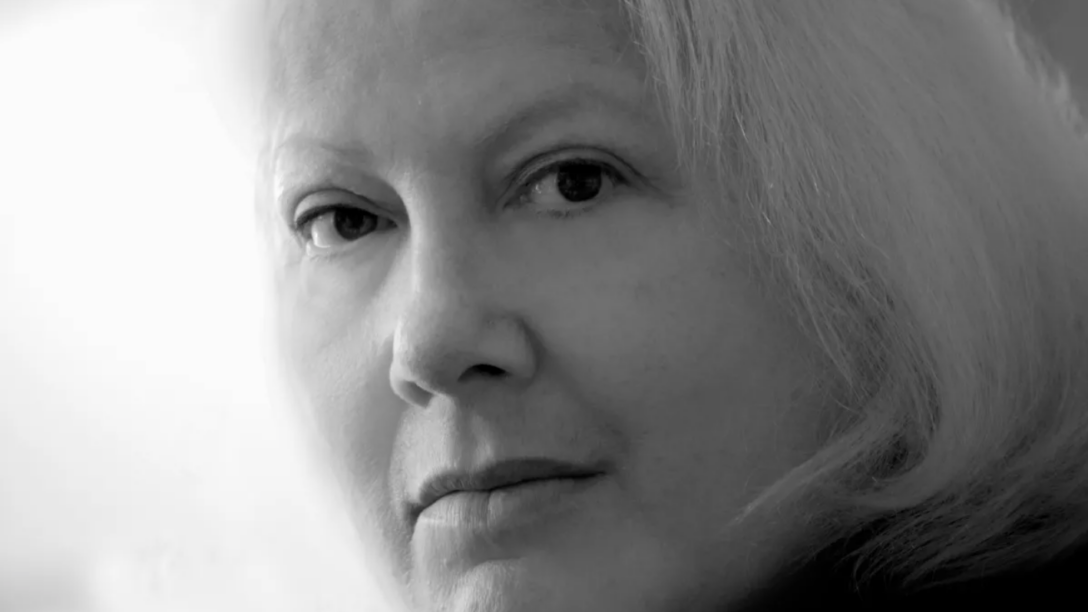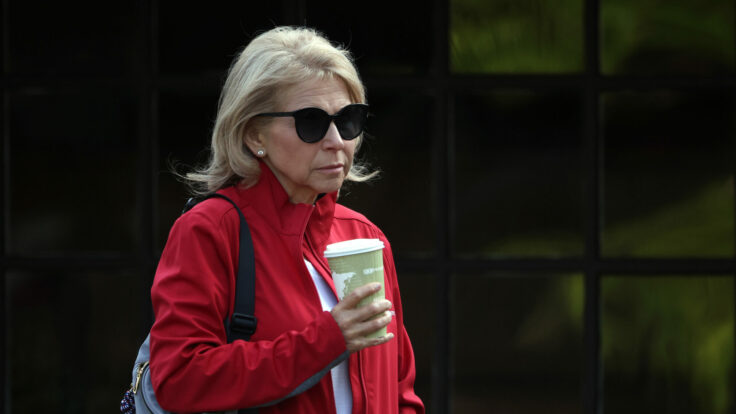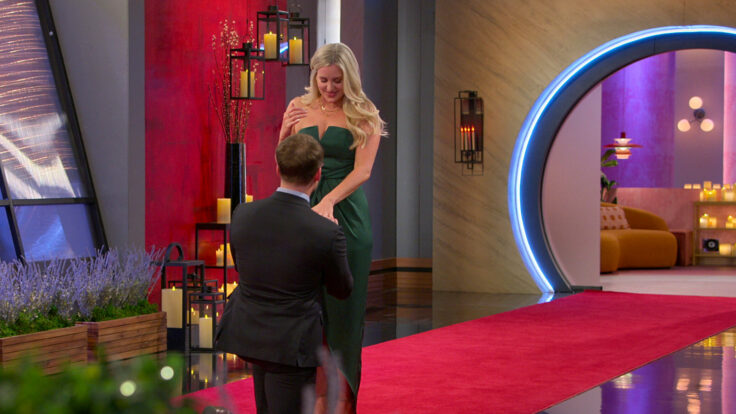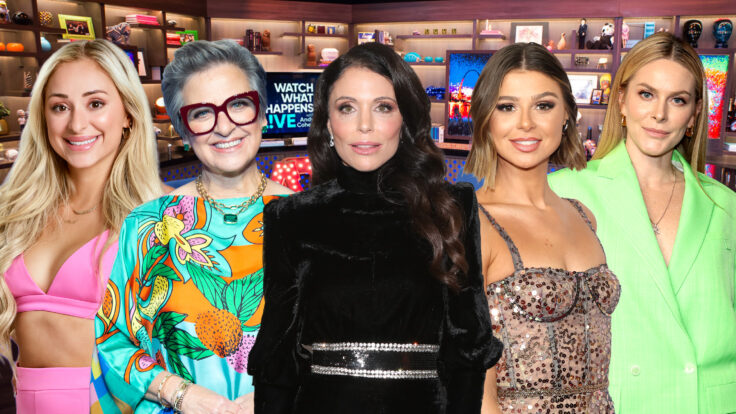My last of probably hundreds of testy exchanges with Nikki Finke over the years occurred about a year ago, in my Twitter DMs, just as we were launching Puck. “You should return to lawyering,” she wrote me. “More money and steady work. Journalism is a dead profession.”
Not exactly in line with the image Finke cultivated during her seven years at Deadline.com as a journalistic crusader, the only person with balls big enough to stand up to the Hollywood moguls and speak truth—or her version of it—to the powerful. She had actually sent me many messages like that when I was editor of The Hollywood Reporter, cynical tirades about how nothing in media mattered and the only thing she was proud of was that she had convinced the car-racing heir Jay Penske to pay her more than $10 million for Deadline in 2009. Having since flamed out of the business that brought her fame and fortune, Finke’s posture in her final years, at least to me, was that it was all beneath her. During that last exchange, she continued: “Try to start out as a partner. Money = happiness. Trust me, I’m incredibly happy!”
I doubted that. Everyone in Hollywood who was active during Finke’s reign—and it was a reign; she dominated the landscape from 2006 to 2013 in a way that is difficult to explain to those who didn’t experience it—has a Nikki story, and most of them are awful. She was awful. Screaming threats. 3 a.m. phone calls. Outright blackmail. I’m all for being super-aggressive on a story—but she’d try to destroy lives, to get agents and assistants fired if they wouldn’t do her bidding. She’d torment publicists with email subject lines like “today’s the day I ruin your career.” She once attempted to sabotage the book deal of a rival journalist I know, just because. She’d have her lawyer send frivolous and harassing letters, and in 2011 she convinced Penske to sue THR for $5 million over some website code we mistakenly used from a Penske site. (It settled.) Nobody does anything in Hollywood unless they’re afraid, she once told me. There’s an element of truth to that, and good journalists know how to exploit that fear, but Nikki took it to a destructive and selfish end.
We all loved to read when she went after someone, but Nikki once told me in blunt terms that she occasionally wrote horrible things she knew to be untrue about people in order to get them to play ball with her in the future. That’s pretty much the definition of libel, but to her it was just a casual Hollywood power play—a way for her to exert control over people with more power than her. And to control the next story, and the one after that. Most journalists, even those with a pointed voice and a perspective (myself included), wouldn’t write anything that they wouldn’t say to someone’s face. But Nikki sidestepped those ethics by being unseen by anyone. Her absence from events and lunches, and the lack of any boss or owner to call and complain about her, made her simultaneously ubiquitous and untouchable—hence that decades-old file photo hovered over Hollywood like a cloud of toxic smoke, and you never knew when she would decide to announce that, say, Paramount executive John Lesher was allegedly “whacked out and shit-faced and falling down drunk.” With Nikki, the power play was disguised as a righteous crusade. Like I said, awful stuff.
That’s why it’s amusing to see all these glowing obituaries and eulogies from journalists on Twitter today after Finke died at age 68 in Florida after a long illness. “Fearless.” “Disruptor.” “One of a kind.” That type of praise. It’s all true, of course—people can be innovative and terrible—but what’s been largely left out of the conversation about her legacy is the terrible part, the tactics by which Finke became so disruptive. Certainly unethical, arguably criminal, in most media environments, Nikki’s bullying would have been rejected, or at least countered. But for some reason—the egos, the fear-based culture, and the transactional nature of showbiz come to mind—Hollywood people not only tolerated her tactics; she was actually celebrated.
Don’t get me wrong. Nikki had deep industry knowledge and incredible journalism skills. At her best, she wrote detailed and definitive accounts of industry failures and successes (mostly failures), executive power plays, and the weekly box office horse race. The prose was never boring, and her willingness to go there influenced a whole generation of business reporters and editors, including me. Her breathless coverage of the Writers Guild strike of 2007-08 brought a welcome new perspective into trade journalism, balancing out the traditional studio-side bias.
Gossip pieces, like that famous email feud between Ari Emanuel and Irving Azoff’s wife Shelli, felt innovative, mostly because it was happening in real time, and the trade press was so used to rewriting press releases that it didn’t think to chronicle what people in Hollywood actually talk about. From the start, Nikki was used as a weapon by those who fed the beast. Does the Endeavor/William Morris Agency hostile merger happen if Emanuel doesn’t drip a steady stream of damaging scoops to Nikki? I’d argue maybe not. Ron Meyer, another early Nikki enabler, always seemed to appear to be the hero around town. That’s really all it took, the rest of the industry soon fell under her spell.
Finke smartly launched Deadline Hollywood Daily at exactly the right time, just after TMZ showed that web journalism was becoming its own powerful thing, and before the “boring old trades,” as she liked to call THR and Variety, could figure out how to adapt. We all had new web-enabled phones, and we wanted to know what was going on right now. And, at least at the beginning, social media wasn’t big. Thus Nikki could serve us her content in a steady feed, and there wasn’t much to counter it. (Launching Deadline in today’s media environment would have been verrrrry different.) She was the classic disruptor taking on the entrenched incumbents, who had become fat and lazy in an 80-year-old duopoly where the only thing that mattered was what Peter Bart decided to put on the front page of Variety. The web was fast, the standards were low, and Nikki could “update” a story if she got it wrong.
That print mentality seems silly now, but I started at THR in the mid-2000s as a relative outsider, coming from the legal world rather than trade media, and it shocked me how oblivious the senior editors were to what Finke was doing. They mostly made fun of her and her breathless, inartful writing style, and they downplayed as “gossip” the juicy missives she would post (as opposed to the publicist-approved “news” in the trades). Then they would go into an afternoon meeting to decide which casting scooplets would appear in the next day’s print issue. There was just such a fundamental misjudgment about the future of the news media, in general, and trade news, in particular.
People talk about how Nikki disrupted that staid ecosystem. That’s true, and certainly impactful. But if Nikki hadn’t come along to migrate the news online, someone else would have. Her actual innovation—the one that still reverberates today—was demonstrating that trade websites could draw a large audience of general interest consumers online. Nikki’s box office coverage—probably the best thing she did—and then her other articles, started appearing regularly on the Drudge Report, which would captivate millions of unique readers each month who likely would never have discovered that content otherwise. Previously, Hollywood trade journalism had been insular; insider media for insiders only. She proved that it was an important piece of the popular culture, she cherished that relevance beyond the industry—something that was new in trade-world—and she protected it fiercely. When THR figured out that trick, she would send nasty emails when Drudge linked to THR instead of Deadline.
Finke was then able to boast that she was beating the old-school trades in audience, as well as buzz, which led to a complete revamp of the trade business model. The traditional For Your Consideration and congratulatory vanity ads remained, but now there was this whole other online consumer audience. THR and Variety soon went weekly in print, and ramped up their web content. Variety dropped its “slanguage,” a literal alternate vocabulary—full of prexies and toppers and thesps—that was designed to draw a velvet rope around its product. Instead, the new currency was leveraging the access and participation granted to the decades-old print trades to generate consumer-facing scoops that would “travel” online. There’s pros and cons to that strategy—I’d argue that the focus on consumer news has neglected that core industry audience—but it all traces back to Finke.
None of that changes the fact that Nikki was a terrorist. A journalistic terrorist, sure, yet a terrorist nonetheless. She presented herself as a no-bullshit reporter who kept the Hollywood moguls honest, yet she perverted the profession by blackmailing sources, often targeting the weak, and weaponizing the internet to push her bile directly into our inboxes. Outsiders could never really see Nikki for what she was because they found her copy so irresistible. And, after all, Hollywood is such a silly place to begin with, who really cared if there was a woman wreaking havoc in the name of an executive promotion scoop?
After Penske bought Deadline, few at his company could understand why Jay would put up with the constant torment and hand-holding that Nikki required. He paid for her West Hollywood condo, according to financial documents seen by a good source, and he would call and visit her. Their relationship was totally bizarre, but in one way it always made sense to me: Nikki was Jay’s doorway into a world of power and influence not available to any average rich guy. He owed her a lot.
And now Penske has a near-monopoly on all the entertainment trade media, a fact that Nikki lamented to me once she left Deadline. After she was finally photographed and exposed by a website called NikkiStink.com in 2014 (that’s a whole other story), she complained to me a couple times about how Deadline had “gone downhill” without her, whether in protecting abusers like Harvey Weinstein or shilling for Saudi Arabia’s Red Sea International Film Festival. It had become a “boring old trade,” just like she feared.
Sure, but there’s one fact she never mentioned: How all those scoops, and the Deadline of the Nikki years, came with a price.

















